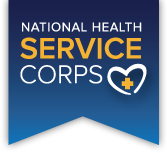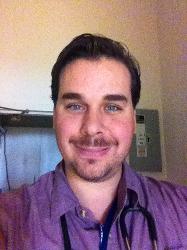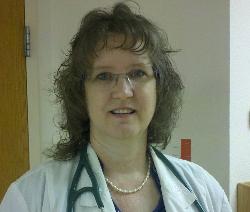When Dr. Pauline Rolle was in medical school, she wanted to travel the world and do medical missionary work. But, something her grandmother said really got her thinking. She explains, “My grandmother asked me, ‘why can’t you do missions work right here in your own country? Yes, there are people all over the world who need you, but there are also people right here who need you. So you need to think about that.’ And, she was absolutely right. There are people here who need me.”
Since graduating from medical school, Dr. Rolle, a National Health Service Corps (NHSC) Loan Repayment Program recipient, has taken her grandmother’s advice and works as a pediatrician and medical director at a Duval County Health Department clinic in Jacksonville, Florida. The clinic primarily serves Medicaid patients with a fair number of uninsured as well. The area of Jacksonville served by Pauline’s clinic has one of the highest rates of health disparities in the city.
When Pauline first heard about the NHSC, she wasn’t sure if it was right for her. Even though she wanted to serve the underserved, two years seemed like a long commitment. But, when she found her current position, she decided it was the right time to apply. Now she definitely feels it was the best decision she could have made.
“The program is just awesome – it’s just fabulous. The connectivity among public health providers, the conferences, and the educational credits that they offer – not to mention the support in terms of loan repayment – it’s just a tremendous blessing to me and my family. The help paying down those loans is invaluable, because the debt can be a huge burden. You’re out here trying to do what you think is the right thing, but it’s a labor of love. So to have the added benefit of being able to repay my loans through the National Health Service Corps has just been wonderful.”
While Pauline sees the benefits of being an NHSC provider, she also understands the impact the NHSC has on her community. “The community that I serve is already at a disadvantage. Many of my patients don’t have access to something as simple as food, and good health care is even harder for them to receive. We’re probably the nearest health center for miles. So without public health centers supported by National Health Services Corps, these patients wouldn’t have access to good quality health care the way they do now.”
And, she certainly makes herself accessible to her patients. “My patients know they can come in anytime. Some of them just walk in without an appointment and say ‘Hey I got to talk to Dr. Rolle. You got a minute for me?’ I get the teenagers coming in saying ‘I know she’s going to see me today, because I have an issue I need to talk to her about.’ It’s nice to have that, and it’s nice for them to know that they can come to me and talk to me. They don’t feel judged by me, and they don’t just view me as a doctor. They kind of view me as a friend, or in some instances, as a member of their family.”
Those experiences are what make it all worthwhile for Pauline. She feels truly connected to her community and her patients and wouldn’t trade it for a higher salary. As she puts it, “It’s easy to go and make a lot of money. It’s a lot more difficult to make an impact on someone’s life.”





